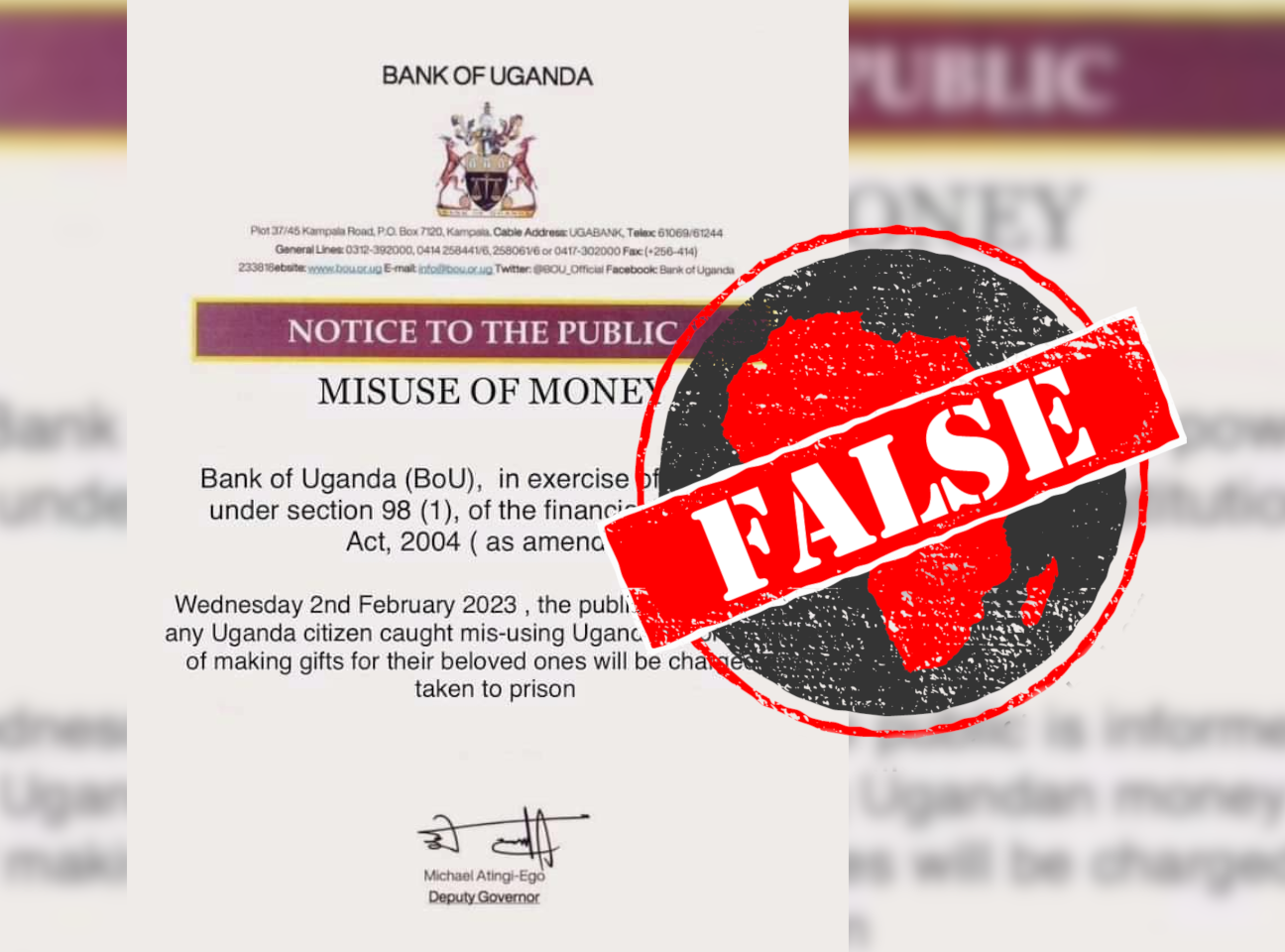IN SHORT: Ugandans who give money to their beloveds on Valentine’s Day won’t land up in prison. The “public notice” isn’t from the Bank of Uganda.
Seemingly targeted at Valentine’s Day, a “public notice” that appears to have been issued by Uganda’s central bank has been posted on social media.
The “notice” warns that any person who gifts money to their “beloved ones” will be charged and imprisoned.
It reads:
Bank of Uganda (BoU), in exercise of its powers under section 98 (1), of the financial institutions Act, 2004 (as amended) Wednesday 2 ND February 2023, the public is informed that any Uganda citizen caught mis-using Ugandan money inform of making gifts for their beloved ones will be charged and taken to prison.
Valentine’s Day on 14 February is an annual and global celebration of romantic love. People often give presents and treats to their loved ones on the day. In some countries, people wrap the gifts in banknotes.
The notice has been posted here, here, here, here and here.
But has the Bank of Uganda really warned that cash gifts to loved ones is a misuse of the country’s money, and risks a criminal charge?

‘Fake please disregard’
The Bank of Uganda has posted the “public notice” on its official Twitter account – stamped “FAKE” in red.
“This is fake please disregard,” the bank’s tweet reads.
Republish our content for free
For publishers: what to do if your post is rated false
A fact-checker has rated your Facebook or Instagram post as “false”, “altered”, “partly false” or “missing context”. This could have serious consequences. What do you do?
Click on our guide for the steps you should follow.
Publishers guideAfrica Check teams up with Facebook
Africa Check is a partner in Meta's third-party fact-checking programme to help stop the spread of false information on social media.
The content we rate as “false” will be downgraded on Facebook and Instagram. This means fewer people will see it.
You can also help identify false information on Facebook. This guide explains how.


Add new comment